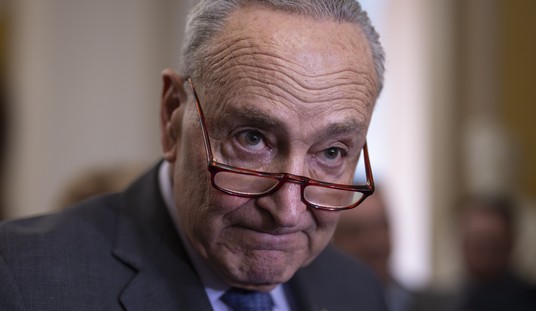Ever since the Supreme Court weighed in on the J.G.G. case in early April, holding that D.C. District Court Judge James Boasberg did not have jurisdiction to enter temporary restraining orders (TROs) certifying a class and restraining the government from removing alleged Tren de Aragua (TdA) gang members from the country pursuant to the Alien Enemies Act (AEA), we've been waiting to see what the courts who do have jurisdiction (at least arguably) might do in the offshoot cases.
Thursday, we received an answer in one of those cases, and it's not one that is favorable to the Trump administration, although it should be noted at the outset that Judge Fernando Rodriguez Jr. is a Trump appointee. So, whether this was a partisan decision or a misguided one is not readily evident. And even while one might disagree with the conclusions reached by Rodriguez on the matter, his rationale is set forth methodically and thoroughly, and without resorting to the hyperbolic rhetoric we've seen emanating from many of his colleagues who can't seem to keep from wearing their Trump antipathy on their sleeves.
READ MORE: SCOTUS Hands Trump a Major Win on Use of Alien Enemies Act to Deport Some Illegals
Breaking: Texas Judge Presses Pause on Removal of Venezuelans Under Alien Enemies Act
This decision is not an anti-Trump screed or even a "deportation bad" decision. It's simply one that determines that the administration cannot properly employ the AEA in the manner it has here. In fact, the decision specifically notes that nothing in it should affect the administration's ability to continue removal proceedings or enforcement of any final orders of removal issued against the named plaintiffs — or any member of the certified class — under the Immigration and Nationality Act (INA).
In the end, though, Rodriguez determines that Trump's invocation of the AEA through the Proclamation issued on March 15 exceeds the scope of the statute and the government does not "possess the lawful authority under the AEA, and based on the Proclamation, to detain Venezuelan aliens, transfer them within the United States, or remove them from the country."
The crux of Rodriguez's ruling turns on his determination that TdA's activities in the U.S., as set forth in the Proclamation, "do not fall within the plain, ordinary meaning of 'invasion' or 'predatory incursion' for purposes of the AEA." The full opinion may be viewed here, and Margot Cleveland has a solid explainer thread on the ruling on X, but I'll simply share a couple of reasons why I'm skeptical that Rodriguez's decision will hold on appeal:
- He sidesteps the issue of whether or not class certification is available in a habeas proceeding such as this by relying on the All Writs Act to fashion analogous relief — so he essentially certifies a class (to include all "Venezuelan aliens, 14 years old or older, who have not been naturalized, who Respondents have designated or in the future designate as alien enemies under the March 14, 2025, Presidential Proclamation...and who are detained or reside in the Southern District of Texas") without certifying a class in the traditional fashion.
- On the issue of commonality (necessary to certify a class), he glosses over the fact that each potential class member will need an individualized determination as to whether or not they are, in fact, TdA members.
- On his interpretation of whether or not the AEA and Proclamation may be used to remove the named plaintiffs (and other similarly situated individuals), he winds up pretty well dancing on the head of a pin to find that the TdA activities described in the Proclamation don't meet the definition of an "invasion" or "predatory incursion" (which he determines require some level of organized, military action).
It's also possible the administration will opt to amend the Proclamation to more neatly meet the language of the AEA (in addition to appealing this decision). As Rodriguez rightly notes in his opinion, similar litigation is going on in several other district courts throughout the country, so it will be interesting to see whether, with Rodriguez being first, his fellow judges (some of whom seem anxious to thwart the administration in whatever way they can) take a page from his book or forge their own paths on this issue.
I could write quite a bit more on this one, but I'll simply close with a thought that came to me as I was composing this: Given that Rodriguez doesn't appear to have reached this decision with a partisan bent or purely on emotion, I can't help but wonder if, to some degree, it wasn't inspired or informed by the Supreme Court's late Good Friday/early Holy Saturday order in the A.A.R.P. (now W.M.M.) case which seemingly made a mish-mash of the issue of removals pursuant to the AEA?
Editor's Note: Partisan federal judges are hijacking President Trump's agenda and insulting the will of the people
Help us expose out-of-control judges dead set on halting President Trump's mandate for change. Join RedState VIP and use promo code FIGHT to get 60% off your membership.















Join the conversation as a VIP Member